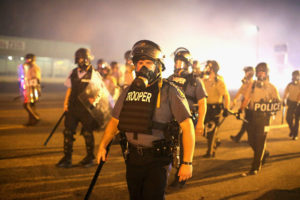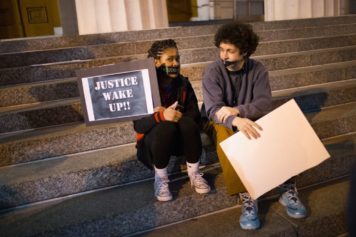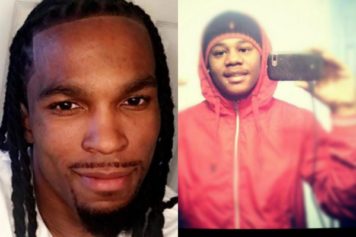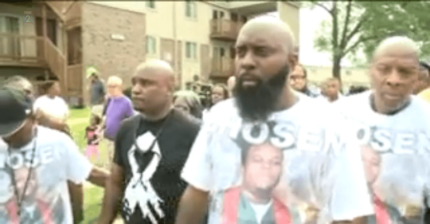In a move that would appear to be a victory for the Black struggle movement and a testament to the power of protest, a Ferguson judge announced broad changes to the city’s court system.
Municipal Court Judge Donald McCullin, who was appointed in June, issued an order to withdraw all arrest warrants issued before December 31, 2014. In addition, the judge issued new conditions for pretrial release.
According to a press release from Ferguson, all defendants would receive new court dates and alternate penalties such as community service or payment plans. Under the new rules, people cited for minor traffic violations would not likely face arrest, but rather would be released on their own recognizance and receive a court date. The city says these reforms exceed the requirements of a new law passed by the Missouri state legislature which limits the percentage of revenue cities can collect from traffic fines and fees. Meanwhile, some civil rights legal advocates argue that all of these cases should simply be eliminated altogether.
The sweeping changes come a year after the fatal shooting of Michael Brown by Ferguson officer Darren Wilson. The killing, which neither the St. Louis County District Attorney nor the U.S. Department of Justice chose to prosecute, sparked protests and unrest, and gave birth to a new movement that seeks to dismantle the systems of oppression against Black people. Further, the killing of Brown created a space for a more sustained national discussion on racism and the criminal justice system, the conditions facing Black people in all facets of society, white privilege and white supremacy.
In March, the U.S. Justice Department issued a report of its civil rights investigation of Ferguson, which found the police and municipal court was engaged in a “pattern and practice” of racial discrimination against the city’s African-American population. For example, Black drivers were twice as likely as their white counterparts to face searches during traffic stops, yet 26 percent less likely to possess contraband. Moreover, 88 percent of the cases involving police use of force were against Blacks.
The city of Ferguson built a revenue generating scheme on the backs of its poor, Black citizens—a major source of animosity between the community, the police and the court system.
“Ferguson police officers issued nearly 50 percent more citations in the last year than they did in 2010 – an increase that has not been driven, or even accompanied, by a rise in crime,” said then-Attorney General Eric H. Holder. “Along with taxes and other revenue streams, in 2010, the city collected over $1.3 million in fines and fees collected by the court. For fiscal year 2015, Ferguson’s city budget anticipates fine revenues to exceed $3 million – more than double the total from just five years prior.”
Holder noted that Ferguson police officers competed and were pressured to meet their revenue quotas.
“Once the system is primed for maximizing revenue—starting with fines and fine-enforcement—the city relies on the police force to serve, essentially, as a collection agency for the municipal court rather than a law enforcement entity,” Holder noted.
Following the Justice Department scathing report, Ferguson’s police Chief Thomas Jackson resigned. Meanwhile, although the change has been welcomed as a good first step, an analysis by CNN earlier in the month found that the city was still generating thousands of new arrest warrants—over 2,300 for the year so far—and locking up people for minor offenses.
The news from Ferguson comes as the Circuit Attorney’s office in nearby St. Louis announced it would conduct an independent investigation apart from the police in the August 19 shooting death of Mansur Ball-Bey, 18. Police claim that as they were serving search warrants, they were confronted by two armed men, including Ball-Bey. Police also allege that when they ordered the men to drop their weapons, Ball-Bey raised his gun. The official autopsy report, however, contradicts the police account of events, as Ball-Bey was shot with a bullet to the back.
Meanwhile, St. Louis Mayor Francis Slay recently announced the selection of seven people for the city’s new civilian oversight board, which will investigate and review police misconduct complaints in the city. While the recent show of force by police in Ferguson and the greater St. Louis area, including the arrest of peaceful protesters during the first anniversary of Brown’s death, prove that much still has remained the same, it is hard to imagine these reforms taking place without the pressure applied by a new Black-led social movement.



